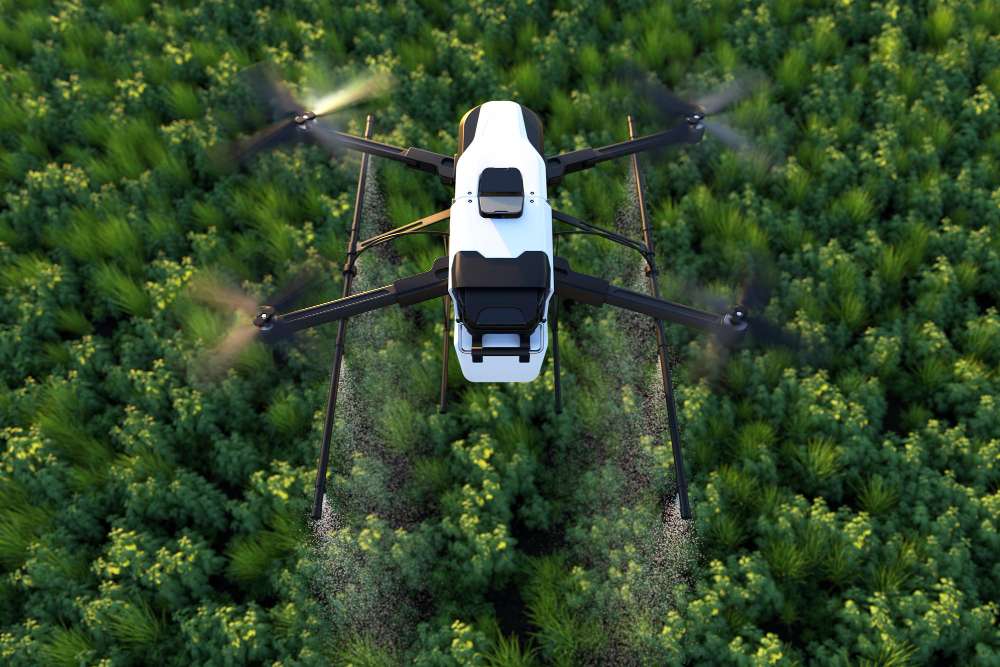In recent years, the construction and surveying industries have witnessed a significant transformation thanks to the integration of drone technology. Drones, or Unmanned Aerial Vehicles (UAVs), have rapidly become invaluable tools for civil contracting and surveying professionals. Their ability to capture high-resolution imagery, collect data, and perform tasks efficiently has revolutionized how projects are planned, executed, and monitored. In this blog, we will explore the innovative uses of drones in civil contracting and surveying, showcasing how this technology is reshaping the landscape of these industries.
1. Aerial Site Inspections
Drones have made it possible to conduct quick and thorough aerial site inspections, providing construction and surveying professionals with a bird's-eye view of the entire project area. This aerial perspective comprehensively assesses the site's topography, terrain, and existing structures. Using drones, teams can identify potential challenges, plan access routes, and make informed decisions about construction and excavation processes. This improves safety and reduces the risk of costly delays due to unforeseen obstacles.
2. High-Resolution Mapping and Surveying
Traditional land surveying methods often involve manual labor and are time-consuming. Drones equipped with advanced cameras and LiDAR (Light Detection and Ranging) sensors can capture highly accurate 3D models and topographical maps of large areas in a fraction of the time it would take using conventional techniques. This innovation in mapping and surveying has proven invaluable in land development, road construction, and environmental monitoring projects.
3. Progress Tracking and Reporting
Drones play a vital role in project management by enabling real-time progress tracking. Construction companies can deploy drones to capture regular site development updates, creating a historical record of changes. This data helps project managers and stakeholders assess whether the work is proceeding as planned, identify deviations, and promptly make necessary adjustments. Such transparency can improve communication, reduce disputes, and ultimately lead to more successful project outcomes.
4. Safety and Risk Mitigation
Safety is paramount in the construction industry. Drones can enhance safety by reducing the need for workers to access hazardous or hard-to-reach areas manually. They can inspect infrastructure such as bridges and towers, reducing the risk associated with human inspection. Additionally, drones can monitor construction sites for compliance with safety regulations, helping to prevent accidents and maintain a safe working environment.
5. Environmental Impact Assessment
With increasing emphasis on sustainability and environmental protection, drones have found an essential role in assessing the ecological impact of construction projects. They can be equipped with thermal cameras and multispectral sensors to monitor changes in vegetation, water bodies, and wildlife habitats. This data is crucial for ensuring that construction activities adhere to environmental regulations and minimize their impact on local ecosystems.
6. Infrastructure Maintenance
Drones have become indispensable in maintaining critical infrastructure such as roads, bridges, and pipelines. They can be used to inspect and assess the condition of these structures, identifying any signs of wear, damage, or corrosion. Early detection enables timely repairs, ensuring the longevity and safety of essential infrastructure elements.
7. Improved Communication
Drones facilitate better communication among project teams, stakeholders, and clients. By capturing high-quality aerial imagery and 3D models, they provide visual aids for explaining project progress, proposed changes, and potential issues. This visual information is often more accessible and understandable than traditional reports, enhancing collaboration and decision-making.
8. Cost Savings
Efficiency gains from drone technology translate into significant cost savings. Drones reduce the need for extensive manual labor, lower fuel costs, and minimize equipment downtime. Moreover, their ability to detect issues early in the construction process can prevent expensive rework and delays, making projects more cost-effective in the long run.
The innovative uses of drones in civil contracting and surveying have revolutionized these industries. From aerial site inspections to high-resolution mapping, progress tracking, safety enhancement, and environmental impact assessment, drones have proven themselves as indispensable tools for professionals in these fields. By harnessing the power of drone technology, construction companies and surveying firms can improve project efficiency, safety, and environmental responsibility while delivering cost-effective solutions. As the technology continues to evolve, we can expect even more groundbreaking applications to shape the future of civil contracting and surveying. The sky is not the limit; it's just the beginning.

